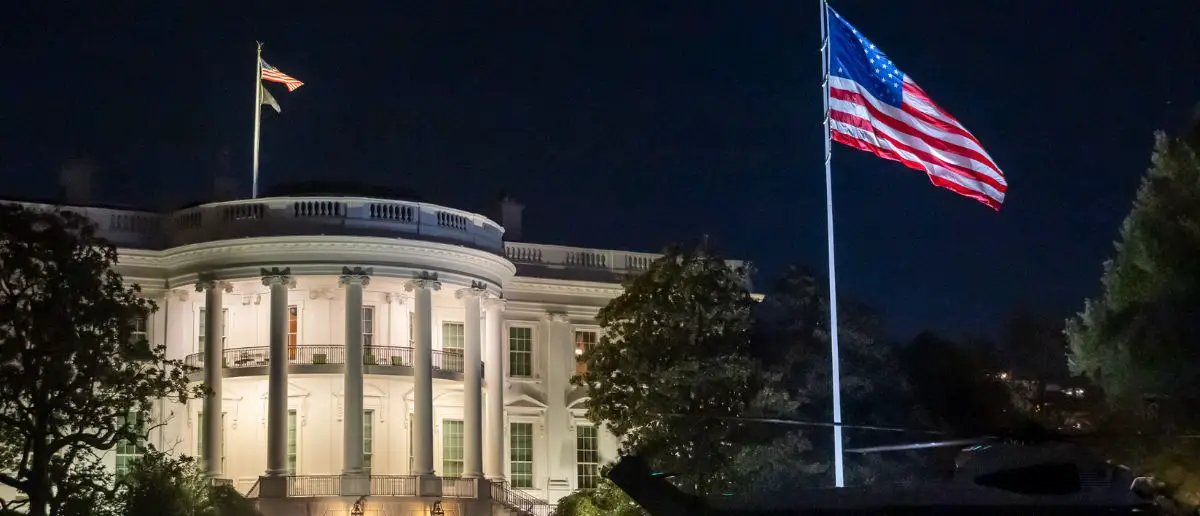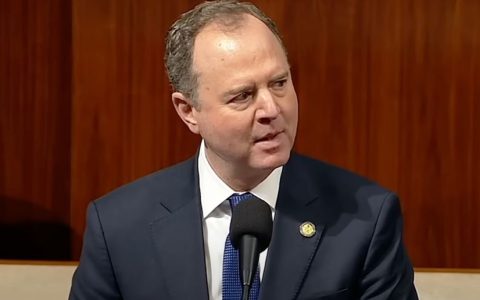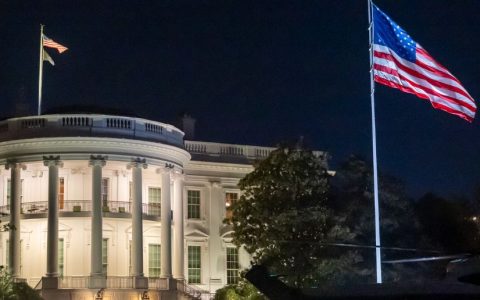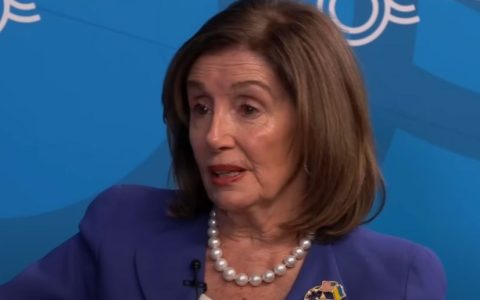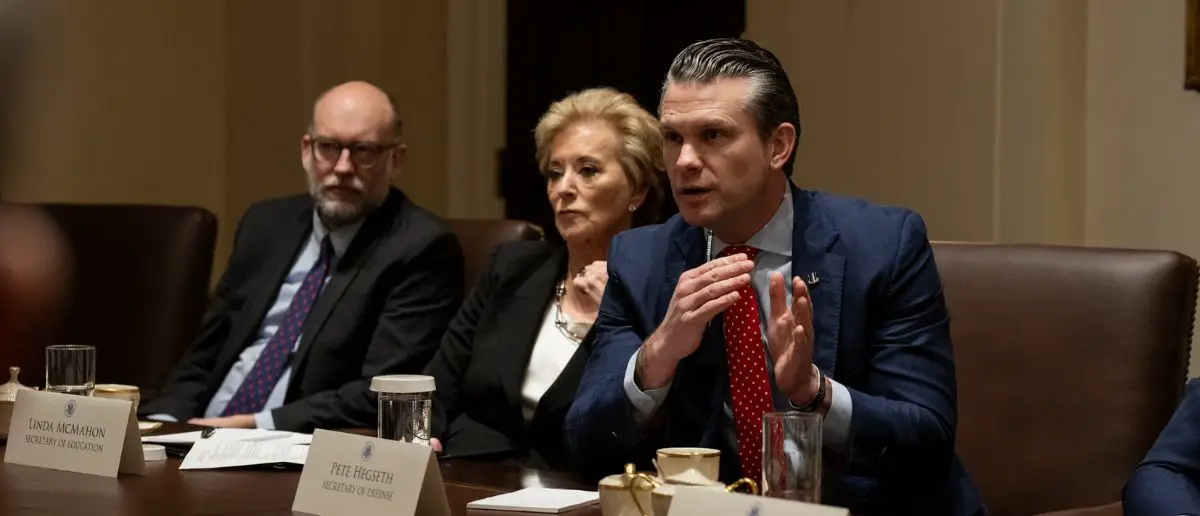
The Trump administration is caught in a tough spot. A difficult decision is being made.
And Trump’s Secretary of Defense has shared a major war declaration news update.
Trump’s High-Stakes Gamble for Peace in Iran
The Trump administration is walking a tightrope in the Middle East, striving to broker a historic nuclear deal with Iran while steadfastly avoiding entanglement in a spiraling conflict between Israel and Iran. On Monday, Defense Secretary Pete Hegseth appeared on Fox News’ Jesse Watters Primetime, reaffirming that President Donald Trump’s nuclear deal with Iran remains “on the table” as the National Security Council (NSC) prepares to convene in the Situation Room. This comes amid escalating tensions following Israel’s preemptive strikes on Iranian military targets, a move that has heightened fears of a wider regional war.
Hegseth’s comments are supposed to gird the administration’s commitment to a strategy of peace through strength. “The president, as he said today, his position has not changed. What you’re watching in real time is peace through strength and America first. Our job is to be strong. We are postured defensively in the region to be strong in pursuit of a peace deal,” Hegseth said. His words highlight the administration’s delicate balancing act: maintaining a robust military presence to protect American interests while keeping the door open for diplomacy with Iran.
The urgency of the situation became apparent when President Trump, in a dramatic post on Truth Social, urged “everyone to immediately evacuate Tehran.” Reports indicate he cut short his attendance at the G7 summit to convene the NSC, signaling the gravity of the unfolding crisis. When Fox News host Jesse Watters pressed Hegseth on whether Trump was still “aiming” for a nuclear deal, the Defense Secretary responded unequivocally, “of course.” This reaffirms Trump’s long-standing goal of preventing Iran from acquiring nuclear weapons through negotiation rather than military confrontation.
Israel’s “Rising Lion” operation, launched on Thursday, targeted multiple Iranian military sites, escalating tensions to a boiling point. Israeli Prime Minister Benjamin Netanyahu confirmed the strikes, vowing to continue until the “threat” of Iran’s nuclear ambitions is neutralized. The Trump administration, while not directly involved, was informed of Israel’s plans in advance, according to the president. Secretary of State Marco Rubio clarified that the U.S. did not participate in the strikes, emphasizing America’s desire to remain a bystander in the conflict while still supporting its ally.
Hegseth elaborated on the administration’s defensive posture, stating, “America first means we’re going to defend American personnel and American interests. So when you see jets and you see air defense assets and counter UAS [Unmanned Aircraft System] assets, that’s because my job as the secretary of Defense is to ensure that our people are safe and that we’re strong so that we can set the conditions for a deal.” His remarks illustrate the administration’s strategy of projecting strength to deter aggression while creating space for diplomatic breakthroughs.
The prospect of a nuclear deal remains central to Trump’s approach. “President Trump’s made it clear it’s on the table. The question is whether Iran will take it,” Hegseth said. With Iran’s military leadership and nuclear sites reportedly suffering significant damage from Israel’s strikes, recent reports suggest Tehran may be open to negotiations. This development offers a glimmer of hope for the administration’s efforts to secure a peaceful resolution, though challenges remain.
Netanyahu, however, has taken a hardline stance, telling ABC News that Israel will not pursue peace talks, accusing Iran of wanting to “keep on building their nuclear weapons and building their mass ballistic missile arsenal.” This divergence between the U.S. and Israel complicates Trump’s diplomatic ambitions, as he seeks to prevent a full-scale war while ensuring Iran does not emerge victorious in its nuclear pursuits.
On Air Force One, Trump spoke candidly to reporters about his vision for resolving the conflict. “I’m seeking a real end to the conflict with Israel and Iran, arguing it’s better than a ceasefire,” he said, adding, “an end, a real end, not a ceasefire. An end. Or giving up entirely. That’s OK, too.” His words suggest a pragmatic approach, open to both a comprehensive resolution and the possibility of walking away if negotiations falter.
The administration’s focus on protecting American personnel is unwavering. Trump emphasized the safety of U.S. troops, warning that if Iran targeted them, the U.S. would respond decisively: “I think they know not to touch our troops.” This stern message reinforces the administration’s commitment to safeguarding its forces while pursuing diplomacy.
When asked about the specifics of a potential deal, Hegseth remained focused on preparedness. “What it looks like right now is we’re vigilant, we’re prepared, and we’ve messaged consistently from the beginning that we’re in the region to defend our people and our assets,” he said. He stressed that Iran could “give it up peacefully,” aligning with Trump’s long-standing position that Iran must not possess nuclear weapons.
The president’s call to evacuate Tehran, while not tied to a specific threat, reflects his concern for civilian safety amid the escalating conflict. “I want people to be safe… That’s always possible something could happen. I just want people to be safe,” Trump told reporters. This humanitarian gesture gives credibility to the administration’s stated desire to minimize collateral damage while navigating the crisis.
Speculation about diplomatic outreach has also emerged, with reports suggesting Trump may send Vice President JD Vance and Steve Witkoff to meet with Iranian officials. When questioned about this possibility, Trump remained noncommittal, stating, “I may. I may. It depends on what happens when I get back.” This flexibility highlights the administration’s willingness to explore all avenues for peace, even as the situation remains fluid.
The next 48 hours will be critical, according to Trump, who noted that Israel’s next moves will clarify whether the conflict escalates or de-escalates. “You’re going to find out. Nobody’s slowed up so far,” he said. The administration’s readiness to adapt to Israel’s actions demonstrates its pragmatic approach to a volatile situation.
Trump’s determination to prevent Iran from acquiring nuclear weapons remains resolute. When asked if U.S. military involvement could ensure the destruction of Iran’s nuclear program, as some Israeli officials have suggested, Trump expressed confidence in a preemptive resolution: “I hope their program is going to be wiped out long before that. They’re not going to have a nuclear weapon.”
Stay tuned to the DC Daily Journal.


